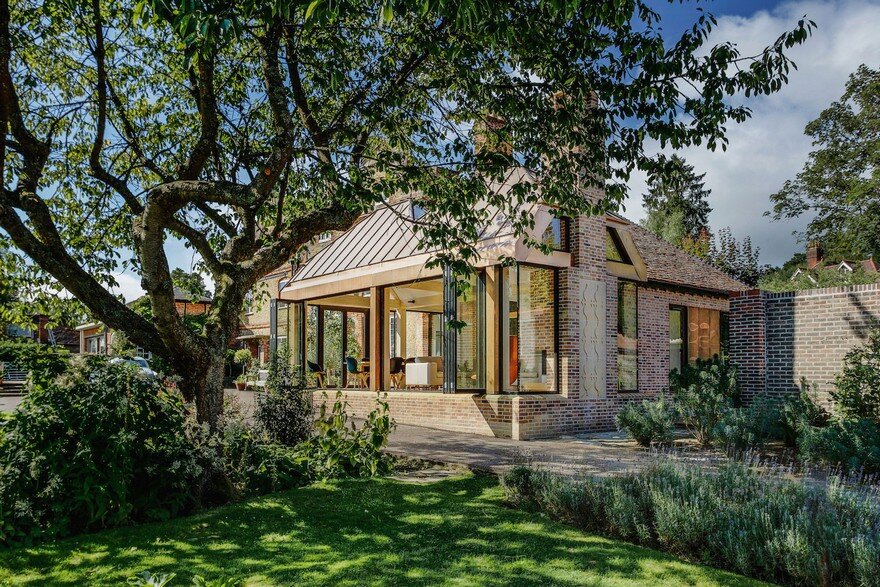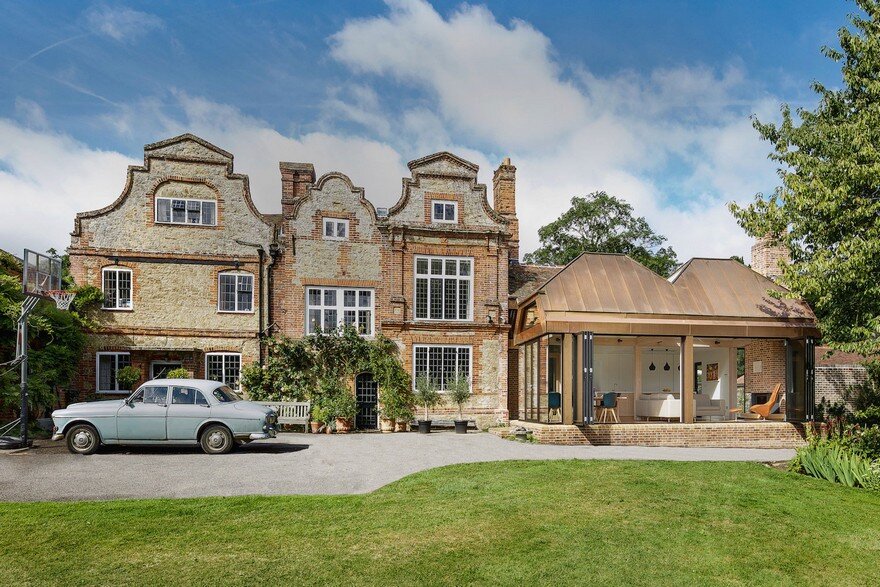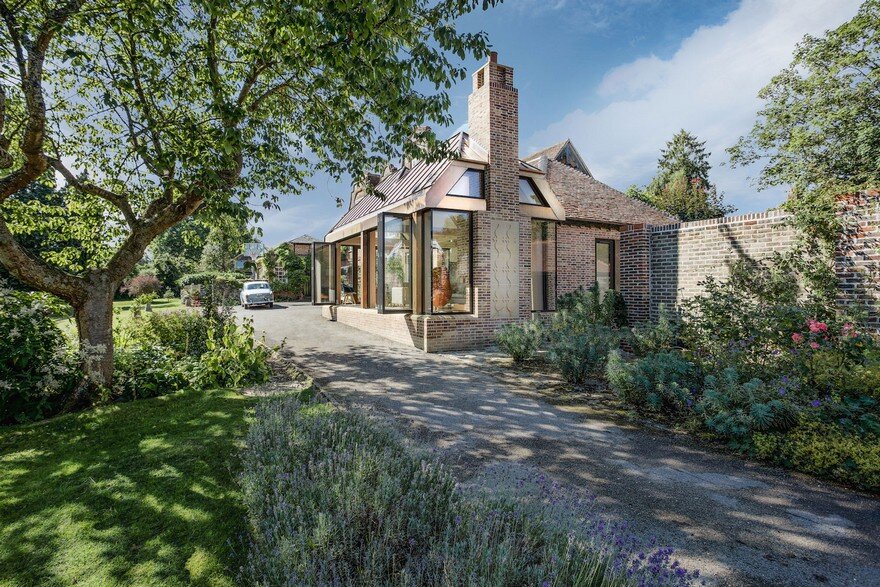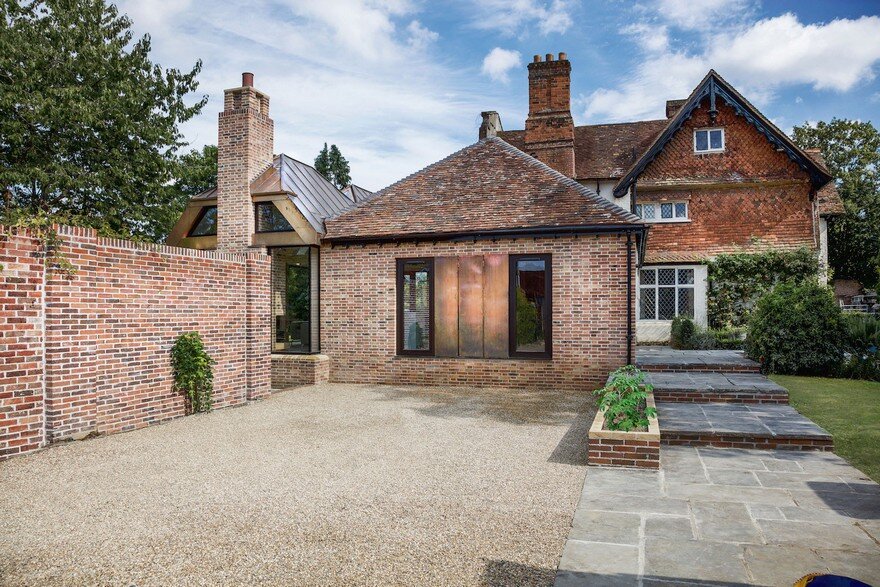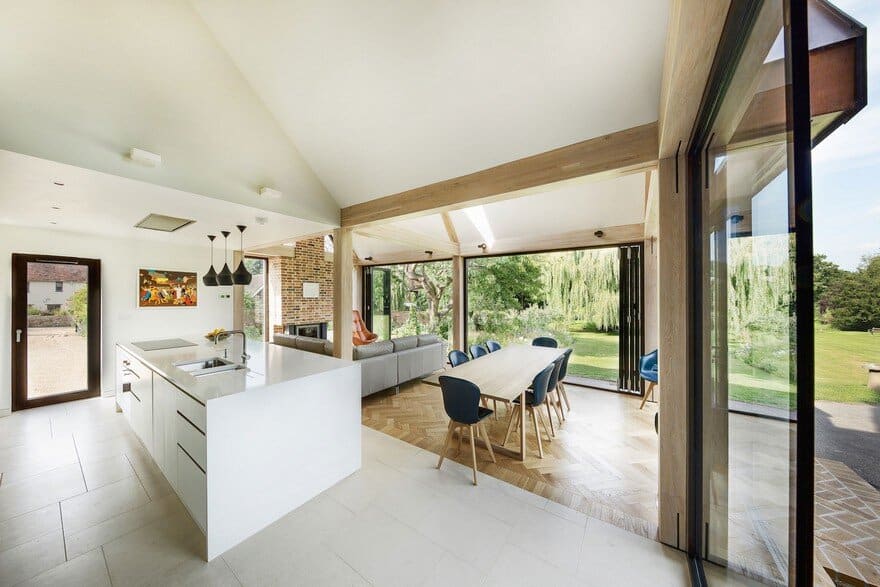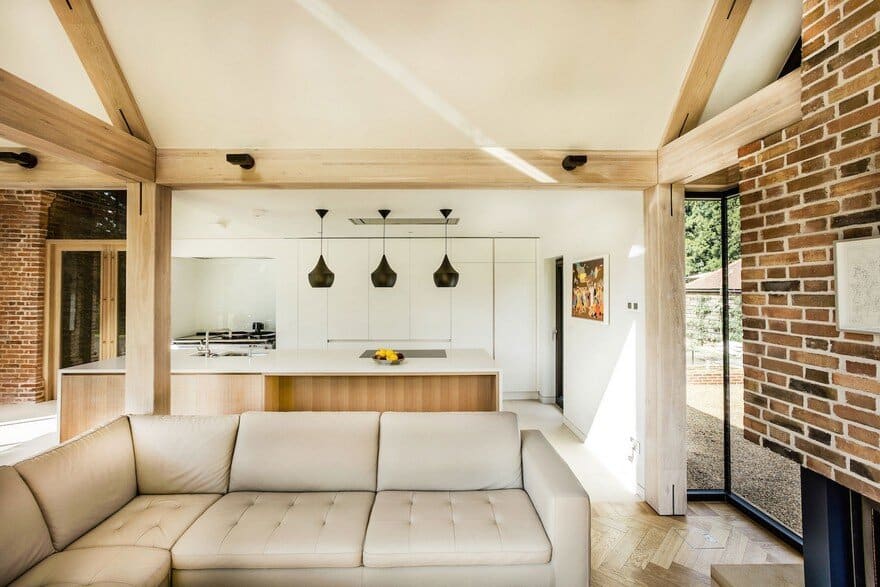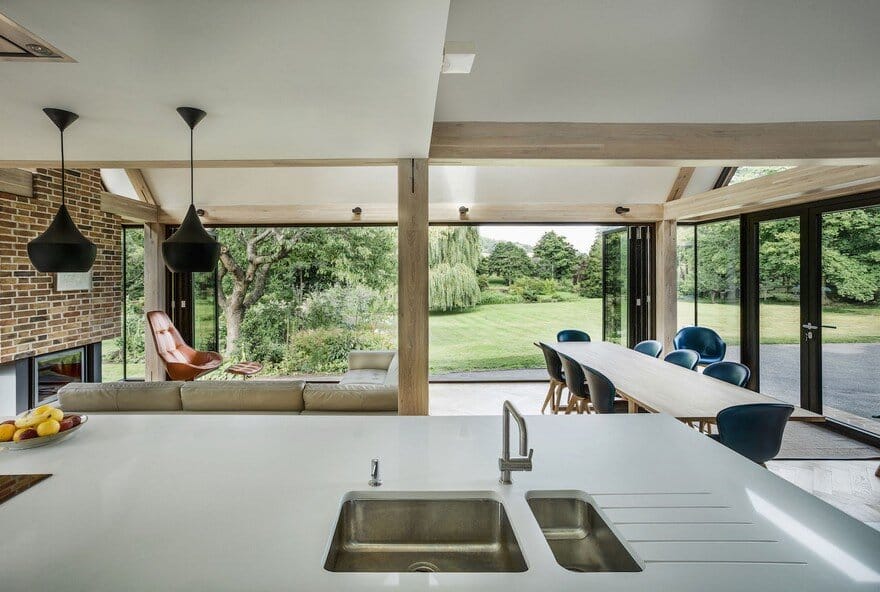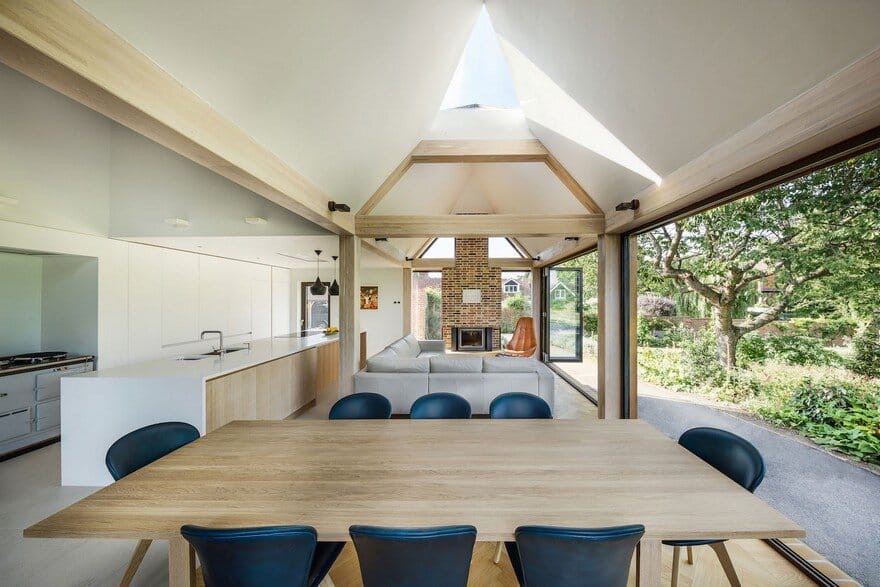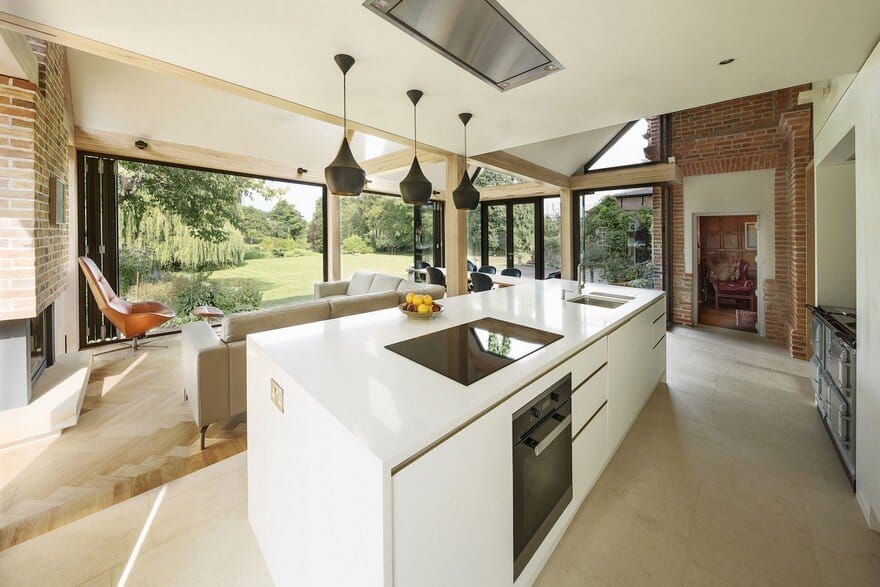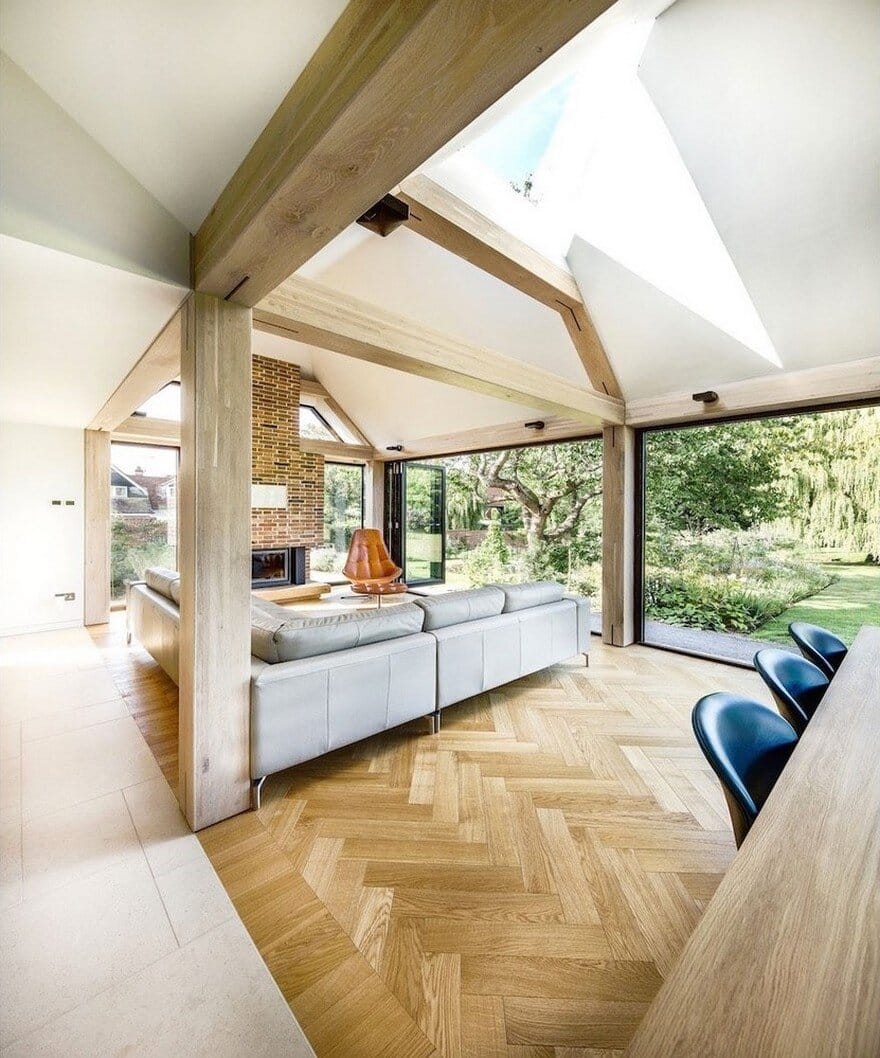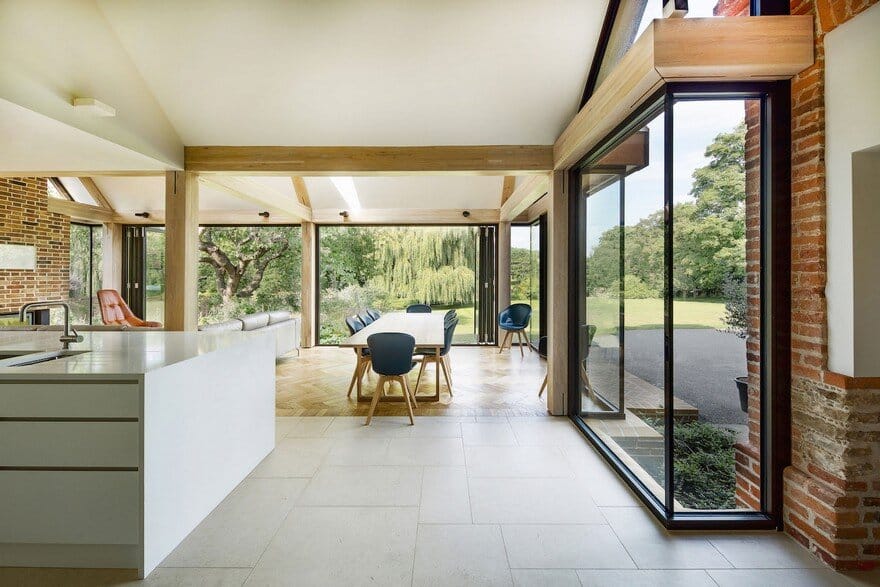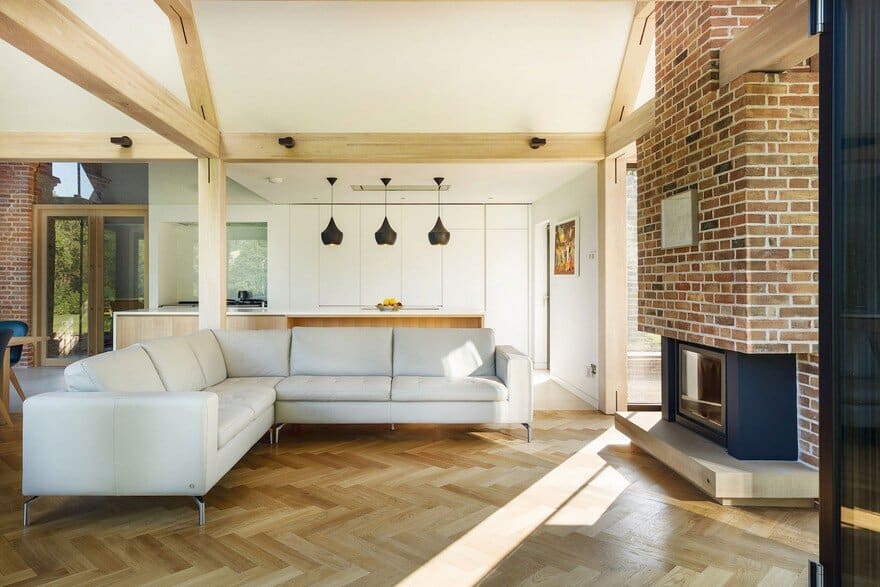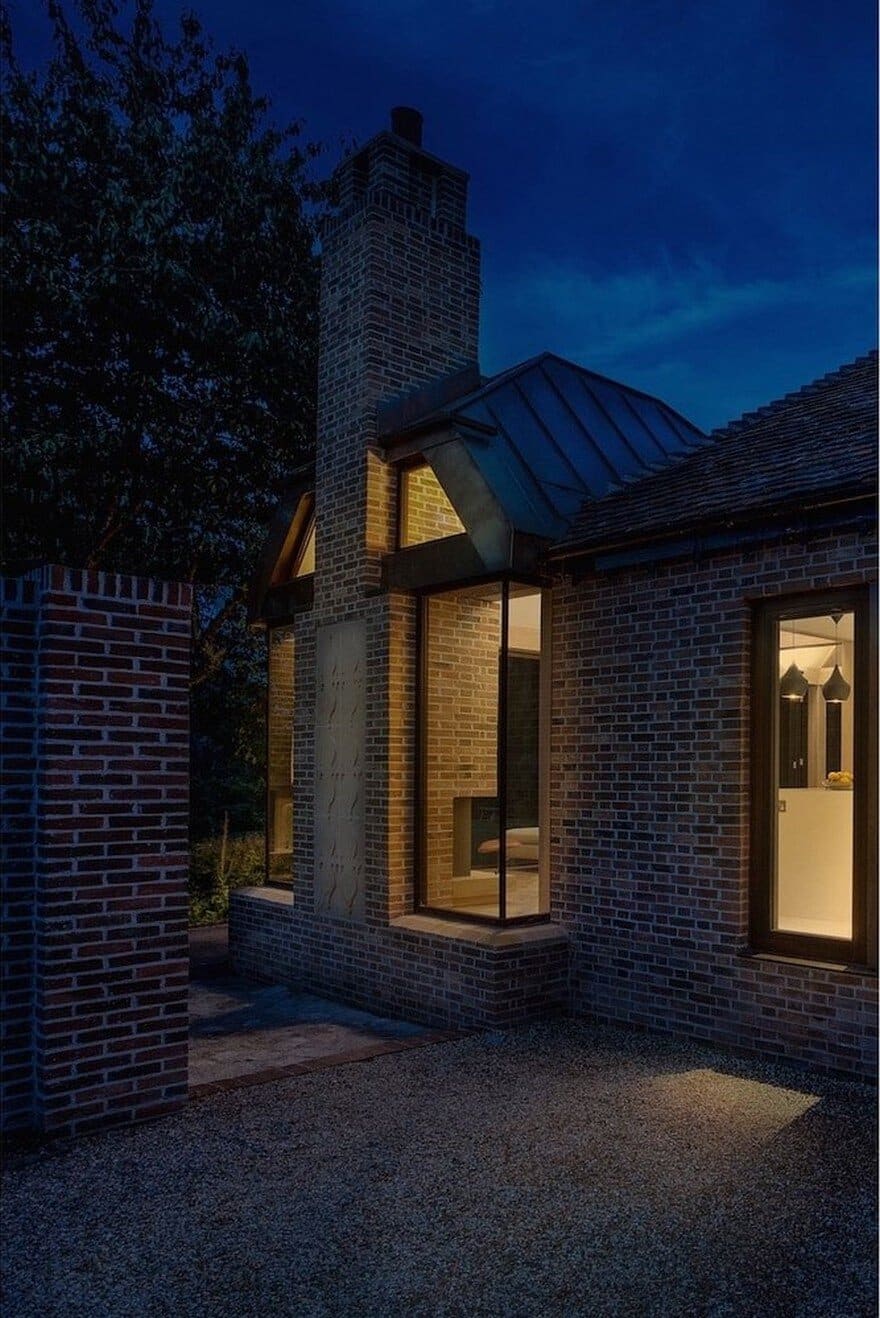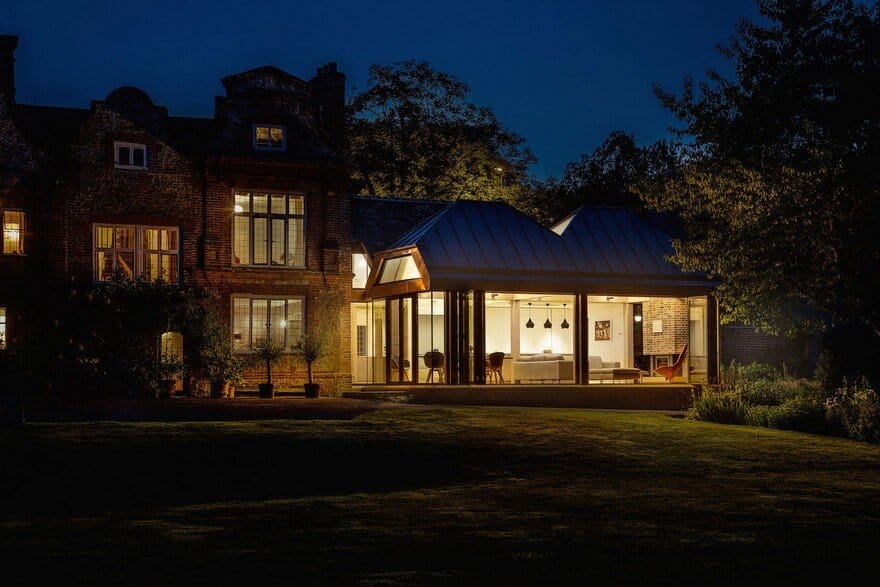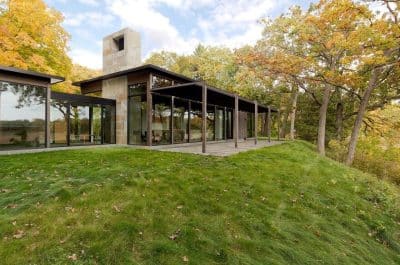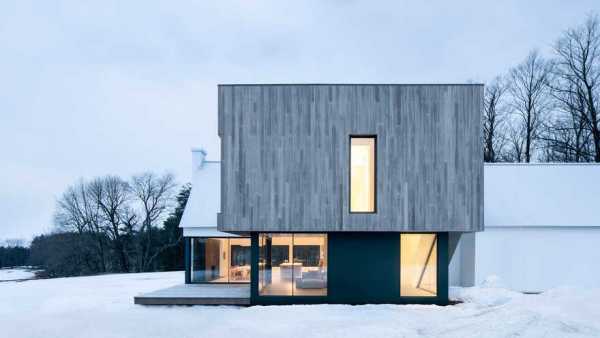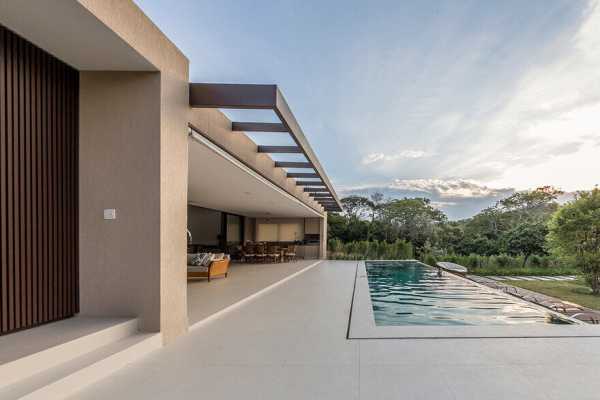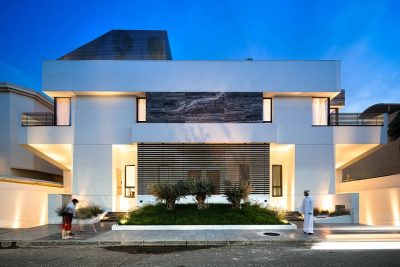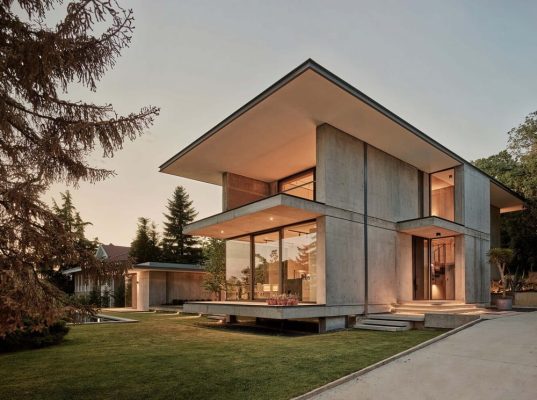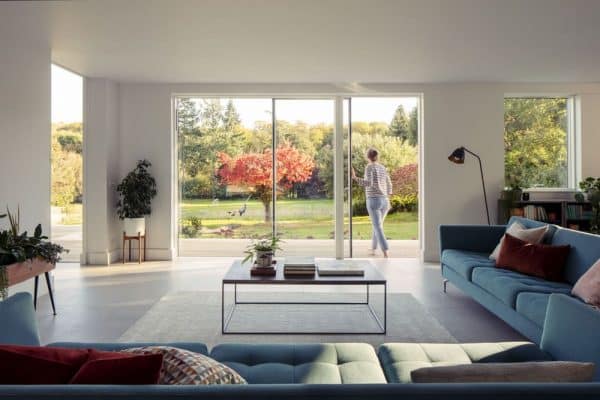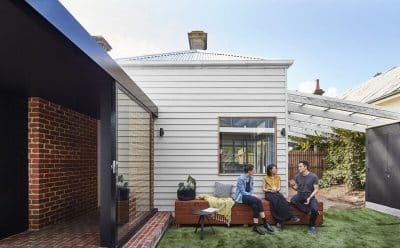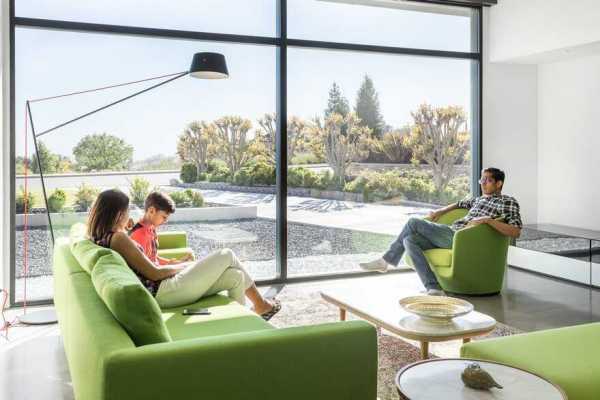Project: Mill House
Architects: OB Architecture
Location: Shalford, Guildford, United Kingdom
Year 2017
Photography: Martin Gardner
The Mill House is a Grade II listed property located in Shalford village Conservation Area. The house is set within a generous 6-acre plot with stunning views adjacent to ‘Shalford Mill’, an 18th Century watermill with Grade II * listing.
The Client’s brief was to extend and remodel the house at ground floor to provide a light filled kitchen dining area that would open out to maximize the potential of the beautiful garden.
The design concept is based on a sketch of the house circa 1836 that shows a cluster of pitched roof forms which have been removed over time. The footprint of the extension is located on the original foundations of these previous structures and reinstates the historic courtyard.
The roof is constructed from an oak glulam frame and clad in a bronze standing seam that has a beautiful weathered texture that compliments the earthy hues of the red brick and stone on the main façade. The roof design features two triangular rooflights which bring light deep into the plan.
The dining and living spaces are defined by the structural layout and vaulted roofs of the two bays formed by the six oak columns. The kitchen is located at the rear under the original roof structure which has also been vaulted and in so doing reveals the existing chimney breast which was repaired and restored.
The living space is orientated to a large brick chimney and stone hearth, designed as a modern interpretation of the chimney to the main house. The living and dining spaces are fronted by full height bi-folding doors in a dark bronze finish that match the proportions of the leaded windows on the main façade. At the four corners of the extension frameless glass-to-glass corners are employed to create a seamless transition from inside to outside.
On the external elevation of the new chimney the house motif that can be seen on the main staircase and Dutch gable façade is reappropriated as a large scale CNC stone cut pattern and exemplifies our contextual approach to the design of this project.

